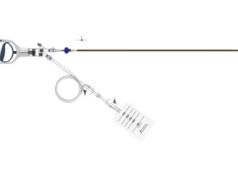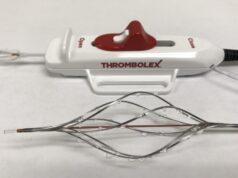
BTG announced on 6 August 2015 that Health Canada has issued a notice of compliance approving polidocanol injectable foam (Varithena, BTG) for the treatment of incompetent great saphenous veins, accessory saphenous veins, and visible varicosities of the great saphenous vein system, above and below the knee.
Louise Makin, CEO of BTG, said: “We are pleased to receive approval in Canada for Varithena and look forward to the commercial launch during the first half of 2016. The controlled launch continues in the US reimbursed sector, where we consistently receive excellent feedback from physicians in relation to clinical performance and patient acceptability. We are also progressing development of related products for other venous disorders.”
Varithena is a uniform, low-nitrogen, polidocanol microfoam, dispensed from a proprietary canister device. Treatment is minimally invasive, non-surgical and requires neither tumescent anesthesia nor sedation.
Varithena is intended for use in adults with clinically significant venous reflux as diagnosed by duplex ultrasound and is indicated for the treatment of incompetent great saphenous veins, accessory saphenous veins, and visible varicosities of the great saphenous vein system, above and below the knee.
Varithena is intended for intravenous injection using ultrasound guidance, administered via a single cannula into the lumen of the target incompetent trunk veins or by direct injection into varicosities. Physicians administering Varithena must be experienced with venous procedures, possess a detailed working knowledge of the use of the duplex ultrasound in venous disease and be trained in the administration of Varithena.
The use of Varithena is contraindicated in patients with known allergy to polidocanol and those with acute thromboembolic disease.









